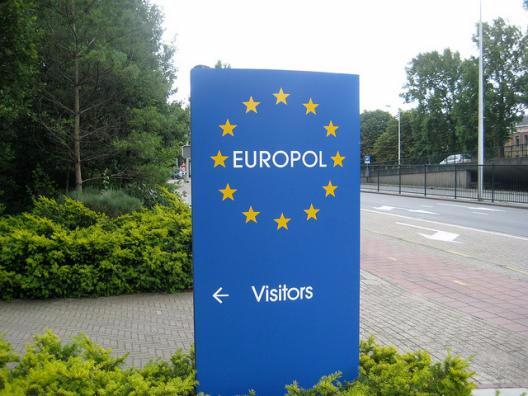 Brussels is calling Theresa May’s bluff on security.
Brussels is calling Theresa May’s bluff on security.
In her Article 50 letter, the British prime minister warned European leaders that cooperation in the “fight against crime and terrorism” would be at risk if the two sides failed to reach a deal on Brexit.
Now the EU is fighting back with what it’s best at: bureaucracy.
On April 27, the European Parliament is expected to green-light a new agreement between Europol and Denmark, an EU country that elected in a 2015 referendum not to participate as full member in the bloc’s justice and home affairs policies.
The deal and its timing, say European diplomats, Commission officials and MEPs, was intended by the Commission to be a not-so-coded message to London: You can’t blackmail us on security.
Until recently, Denmark had direct search access to the agency’s databases, which contain information ranging from vehicle and gun registrations to the names of organized criminals, foreign fighters and suspected terrorists.
But after the referendum, a new agreement — with Denmark outside of Europol — had to be struck. One possibility would have been a deal that granted Copenhagen full or partial access to the database, according to officials involved in the negotiations. Such an agreement would have set a precedent that could have allowed the U.K. to get something similar.
Instead, the deal, struck this month, stipulates that six to eight Danish officers will be based permanently at Europol headquarters in The Hague, where they will process individual requests from Danish security services.
It would be difficult for Europol to strike a deal with the U.K. — which will no longer be a member of the EU after Brexit — that is better than the one it has with Denmark. And even the arrangement it has with Copenhagen is unlikely to be acceptable to London….
Unless an agreement is struck, Britan’s exit would strip Europol of one of its most important contributors. British security services would no longer have access to the agency’s databases, and U.K. Home Secretary Amber Rudd has said her country would also withdraw all its information from the databases.
According to Europol, the U.K. is among the top four contributors to the Europol Information System (EIS), its main database on crime. It is also the fifth largest user of the agency’s platform to exchange information, the Secure Information Exchange Network Application (SIENA).
Europol’s director, former MI5 intelligence analyst Rob Wainwright, has argued repeatedly before and since the Brexit vote that both the EU and the U.K. would benefit from maintaining cooperation on security. He estimates that 40 percent of all Europol cases have some level of British involvement. Home Secretary Rudd has said that the U.K. is “the largest contributor to Europol.”
“I would argue that Britain will play a fairly aggressive game when it comes to Europol,” said Raffaello Pantucci, counterterrorism expert at the Royal United Services Institute in London. “There will be no precedent valid for them, they will want access to the databases. You will see some compromises on the economic side but not on the security one. Let’s be honest: It is in everyone’s interests that this works as smoothly as possible.”
Image: Europol’s current director Rob Wainwright is a former UK intelligence analyst (photo: Rory Hyde)

